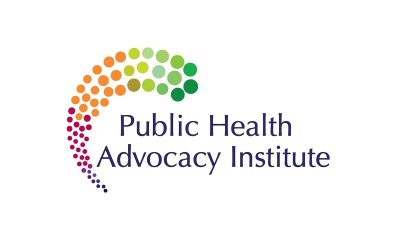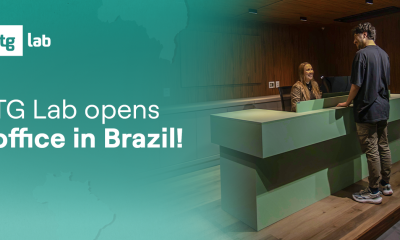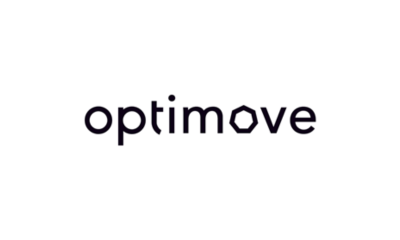Latest News
Five Years Post-PASPA: The Spread of Legal Sports Betting in the USA

Five years ago, the Professional and Amateur Sports Protection Act (PASPA) was repealed by the Supreme Court, kicking off one of the fastest periods of gambling legalization ever seen in the USA.
The repeal of PASPA, which had prevented all but a handful of states from regulating sports betting, started a revolution in real money betting that has forever changed the US gambling industry.
Five years later, itâs time to look back at how the market has developed and the legal, economic, and social effects of this monumental change.
The Context: The Downfall of PASPA
PASPA was a federal law that came into effect in 1992. It included all states except Nevada, Oregon, Montana, and Delaware, which were excluded because their laws already had sports betting provisions.
PASPA outlawed sports betting in all other states, effectively banning it nationwide. This didnât mean that sports betting wasnât happening; it was just an underground, offshore activity.
PASPA remained in force until May 2018, when the Supreme Court ruled it unconstitutional. This was thanks almost entirely to the efforts of New Jersey, under the leadership of Governor Chris Christie, who brought the legal challenge after trying to legalize online sports betting in 2011 and 2014. New Jersey argued that part of PASPA violated the anti-commandeering doctrine (the tenth amendment), which, in overly simple terms, prevents the federal government from coercing states to adopt or enforce federal laws.
The District Court first heard New Jerseyâs case, then the Third Circuit, with both ruling against them. However, upon appeal, the case was heard by the Supreme Court (SCOTUS) on May 14th, 2018. SCOTUS agreed that PASPA violated the anti-commandeering principle, rescinding the entire act and stating that PASPA was meant to work as a whole, meaning that if part of it was not legally viable, the whole act must be struck down.
Legal Outlook: 38 States Legal, 12 To Go
With PASPA gone, each state now had the right to decide whether to legalize sports betting, with a majority opting to. As of November 2023, 38 states have said yes, passing new laws that allow retail sports betting. Online sports betting is also available in 26.
 There are 12 states left to legalize. Three of them (South Carolina, Alabama, and California) face strong opposition, and the remaining nine are looking to introduce bills in the 2024/2025 legislative sessions. North Carolina and Minnesota are tipped to be the next to join the fray, and Oklahoma introduced a new proposal two months ago.
There are 12 states left to legalize. Three of them (South Carolina, Alabama, and California) face strong opposition, and the remaining nine are looking to introduce bills in the 2024/2025 legislative sessions. North Carolina and Minnesota are tipped to be the next to join the fray, and Oklahoma introduced a new proposal two months ago.
The legal landscape remains complex, with different rules, regulators, and taxation regimes in each state. On top of this, in certain locations, the presence of tribal gaming compacts has conflicted with commercial interests (the ongoing case of Florida sports betting and tribal opposition in California serve as perfect examples).
Growth of Online Casinos – Not Going As Planned
While there was no guarantee, many industry experts and commentators hoped that the legalization of sports betting would soon be followed by online casino regulation. However, thus far, only six states have legalized online casinos: New Jersey, Delaware, Pennsylvania, Michigan, West Virginia, and Connecticut, the latest to join the ranks, passing HB 6451 in 2021. Since then, thereâs been no further movement for online casinos.
Players outside the mentioned states may only use land-based casinos or free social gaming sites where available. Sweepstakes casinos are also available across the country, Idaho and Washington aside. As a legitimate gaming option, sweepstakes are taking the US by storm, but just like with real online casinos, players should use a review site to find the best options.
As sweepstakes casinos donât require a license in the USA, expert advice such as Casino Cabbieâs Wow Vegas Online Casino Review highlights any security issues and the benefits and pitfalls of each site as well before players sign up, making them an invaluable resource.
Economics: More Than $220 Billion Spent On Sports Betting Since 2018
One of the biggest drivers of sports betting legalization is the promise of potential tax revenue. The US sports betting industry is enormous, and since 2018, more than $220 billion has been spent on wagers, contributing over $3 billion in state taxes. The revenue earned by states has been instrumental in funding local projects and new initiatives, as well as responsible gambling research and support.
More in-depth and up-to-date research focusing on the exact economic contribution of sports betting is thin on the ground, and the last comprehensive study by Oxford Economics was published in 2017. At the time, it detailed that the entire sports betting industry created over 216,671 jobs.
Due to the lack of current data, weâre left to turn to figures charting the impact of the entire gambling industry, which includes casinos and sports betting. According to statistics from the American Gaming Association in 2022, US gambling is a powerhouse industry, creating, in total, 1.8 million US jobs, with $104.2 billion in wages (these figures include the entire supply chain).
There can be no argument that over the last five years, US sports betting has been a substantial economic contributor, helping state governments recover from COVID-19, creating jobs, and stimulating economic growth.
Social: 77% of American Adults Support Legalization in their State
Legally and economically, things have changed rapidly in the States since the repeal of PASPA, but what about the social impacts?
Research shows that 85% of Americans think the removal of PASPA was correct, with 77% now supporting sports betting legalization in their state. Moreover, the number of Americans open to placing sports bets has grown by 24 million since 2019. With many enjoying the newly legal betting options available to them, public attitudes towards gambling as a whole have seemingly softened.
With many states also benefiting from increased government budgets brought through sports betting tax revenue, itâs important to recognize the benefits this has made to social provisions. Many states have used the influx to contribute more money to education funds and other social causes, like reducing homelessness.
A proportion of the money is also used to fund state problem gambling assistance, with many running state-based hotlines and counseling services. Nonetheless, in many cases, this funding is not enough to offset the increased rates of gambling harms caused by legalization.
Future Outlook: Challenges and Concerns
Looking forward, the US online sports betting industry has a projected compound annual growth rate (CAGR) of 17.33% for 2023-2027, meaning thereâs much more to come. However, this rapid growth will lead to some challenges.
Offshore gambling has been a considerable issue for the legal sports betting market. In 2022, The American Gaming Association estimated that Americans wagered $63.8 billion with illegal bookies, costing $3.8 billion in lost gaming revenue and $700 million in state taxes.
While offshore gambling is reducing, the latest data shows that 77% of online sports bets are now placed through regulated operators, compared to just 44% in 2019. However, things are not all rosy, and 48% of those who bet offshore believe they are placing legal wagers.
Gambling addiction also poses a considerable threat to the sustainability of the entire US gambling industry, with some states recently reporting problem gambling rates over 6%, which is three times the national average (to contextualize this figure better, the UK has a problem gambling rate of 0.2%). High rates of problem gambling twinned with rapid growth potentially represent a ticking time bomb that could rock the entire US industry.
Itâs undoubtedly been an incredible five years for US bettors and sportsbooks; as a newer gambling market, the US must now look to more mature gambling jurisdictions to see what player protection methods work best and implement them sooner rather than later.
Latest News
Plaza Hotel & Casino to host Las Vegasâ inaugural âWing BowlÂŽâ with first qualifying âWing Offâ event on July 4 at 6 p.m. at Carousel Bar

The Plaza Hotel & Casino is bringing to Las Vegas the iconic âWing Bowl,â the premier chicken wing-eating competition that was founded in Philadelphia in 1993. The main event, Wing Bowl 2026ÂŽ, will take place on Feb. 7, 2026, and the first qualifying âWing Offâ event will take place at Carousel Bar at 6 p.m. on Friday, July 4, and it is free to the public to attend.
The first and second place eaters in the July 4 qualifying event will move on to the February contest. The Plaza will also award $1,000 to the person who eats the most Buffalo wings in 10 minutes on July 4. The July 4th qualifying event is one of several that will be held in Las Vegas and Philadelphia in the coming months to compete in the Feb. 7 event at the Plaza.
The main event on Feb. 7 will host a live audience of hundreds of attendees in the Plaza showroom and reach an even wider audience through online broadcasting. With a $5,000 cash prize at stake, 20 competitors will battle it out in three rounds of intense wing-eating action. This competition will feature both amateur and competitive eaters.
The February event will also feature the Wingettes, the cheerleaders of Wing Bowl who escort contestants on stage and bring energy, glamour, and charisma to the event. They will be selected through an exclusive online and live audition process later this year.
William Hill Sportsbook is a partner sponsor of Wing Bowl, and additional sponsorship opportunities are available by contacting
Latest News
From Start to Top-3: Media Buying Agency Gipsyâs Journey in the N1 Puzzle Promo

N1 Puzzle Promo is a unique campaign on the iGaming market from N1 Partners for partners that runs until the end of 2025. Their slogan â âWhy drive when you can fly?â, points to the grand prize. What exactly can you win? Keep reading to find out.
N1 Partners, one of the top affiliate programs with Tier-1 brands, is running the N1 Puzzle Promo. Registered partners run traffic â PPC and ASO, SEO traffic, Facebook, and other channels â and earn puzzle pieces. The more pieces you collect â the better chance to win the main prize⌠a HELICOPTER!
Everyone has a shot at victory. Letâs meet Media Buying Agency Gipsy, now in the top-3 of the N1 Puzzle Promo.
Partnership Background
Media Buying Agency Gipsy and the N1 Partners affiliate program have worked together for many years. Over time they have built smooth processes, strong relationships, and solid analytics.
Ariadna, CBDO of Gipsy MBA, says: âIt feels like weâve worked together forever, but we started handling large volumes only last year.â
Formula for Growth
Traffic from Gipsy to N1 Partnersâ products grew very hard the past year. This rise comes from high-converting offers in Tier-1 GEOs and attractive CPA terms. Partners also get access to analytics and consulting from the program.
Ariadna, CBDO Gipsy MBA: âWe use quality approaches and track analytics regularly. Fast communication with our affiliate manager also helps a lot.â
N1 Puzzle Promo: Experience and Top Products to Scale
Gipsy works with PPC, FB & UAC traffic. All these sources count in the N1 Puzzle Promo:
- PPC & ASO â 1 puzzle piece for every 40 FTD
- FB & other* â 1 puzzle piece for every 100 FTD
*Social media, SMS, Email, UAC, In-app
Ariadna, CBDO Gipsy MBA: âWe joined the N1 Puzzle Promo in April, almost from the very start. The prizes inspire us, especially the helicopter. We didnât change our traffic sourcesâwe just scaled up and tested new sources and GEOs. Over time we tried every product; now we focus on N1bet, Jet4bet, Slotlords, Slotmafia, and Retrobet.â
Today Gipsy MBA is in the top 3 by puzzle pieces, and the team is determined: âSeeing the volumes we run to N1 Partners, we hope to stay in the TOP and grab some prizes. We already hold a top-3 spot for puzzle pieces, so we aim to keep growing,â â commented Ariadna, CBDO Gipsy MBA.Â
If they win, the Gipsy MBA team plans to fly their Robinson R22 Beta II to Australia to chase seagulls. Where will you fly?
Latest News
FIRST and Genius Sports Extend Landmark Data Partnership, Powering Continued Growth

Industry leaders agree new extension to data and streaming partnership that will see FIRST â Best in Sports turbo-charge global growth and boost annual revenues for Genius Sports
 FIRST â Best in Sports, the Tier 1 provider of sports betting solutions, and Genius Sports, the leading sports data and technology company, today announce that they have extended their landmark partnership that will see Genius Sports continue to deliver its industry-leading betting data and streaming technology to FIRST â Best in Sports.
As part of the new agreement, FIRST â Best in Sports will distribute Genius Sports data and streaming content to its expanded B2B network and grow the data companyâs volume, reach and annual revenues in a major way as it brings partners onstream in Latin America, with Brazil as a major focus.
- FIRSTâs growth in Brazil and leading position as a LATAM-focused sportsbook solution will be further enhanced by Geniusâs focus in South America.
- This includes coverage of Brazilâs Serie A, Serie B, Campeonato Paulista, Mexicoâs Liga MX and the Primera Ligas in Uruguay, Ecuador, Bolivia, Argentina, Chile, Colombia and Paraguay.
The deal extension is part of a comprehensive agreement between two companies that are setting industry standards for the speed, accuracy and depth of their online sports betting offerings. The new partnership also sees FIRST become the official betting partner of Genius Sports, with the group set to recommend FIRST â Best in Sports to operators seeking fully-managed sports betting solutions.
Tom Light, CEO of FIRST â Best in Sports, commented: âWe have been working with Genius Sports for many years, and I am delighted to be extending and deepening our relationship with such an industry leader. FIRST â Best in Sports and Genius Sports represent the gold standard in their respective fields and the new agreement will enable us to continue growing revenues for Genius Sports as we launch new partners and expand our network. We look forward to providing the most complete and data-rich solution to sports betting operators in the worldâs fastest-growing markets.â
-

 Compliance Updates7 days ago
Compliance Updates7 days agoPHAI Files Lawsuit in Pennsylvania Over Caesarsâ Dangerous Online Casino Promotion and âPay Through Bonusesâ
-

 Latest News7 days ago
Latest News7 days agoTG Lab unveils new Brazil office to further cement position as marketâs most localised platform
-

 partnerships6 days ago
partnerships6 days agoInternational Gaming Standards Association Welcomes New Payments Committee Member: Sightline Payments
-

 Compliance Updates6 days ago
Compliance Updates6 days agoHonolulu Mayor Signs New Laws Targeting Illegal Game Rooms
-

 Latest News5 days ago
Latest News5 days agoFBMÂŽ unveils golden treasures in Mexico with Crocâs Lock⢠bites
-

 Latest News6 days ago
Latest News6 days agoAGS Named One of U.S. News & World Reportâs 2025â2026 Best Companies to Work For
-

 eSports4 days ago
eSports4 days agoBETBY EXPANDS LATAM FOOTPRINT WITH MOBADOO ESPORTS PARTNERSHIP
-

 Latest News4 days ago
Latest News4 days agoOptimove and EveryMatrix Launch Real-Time Integration to Power Smarter Marketing for iGaming Operators
















